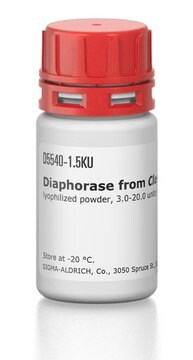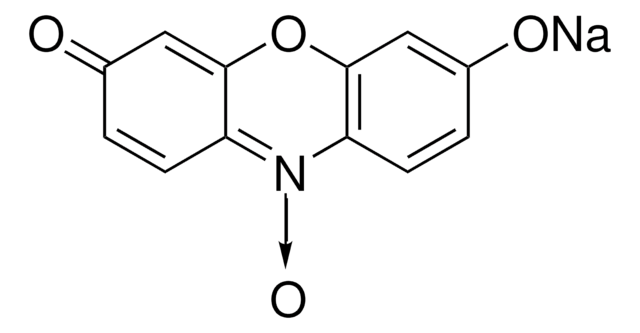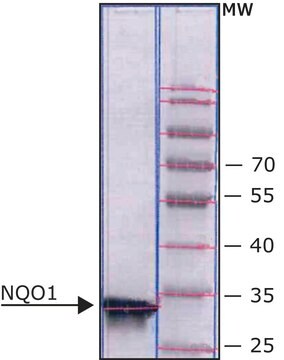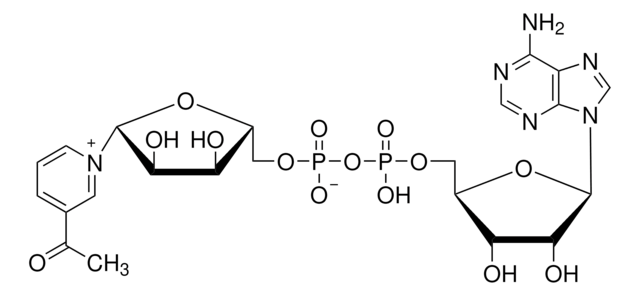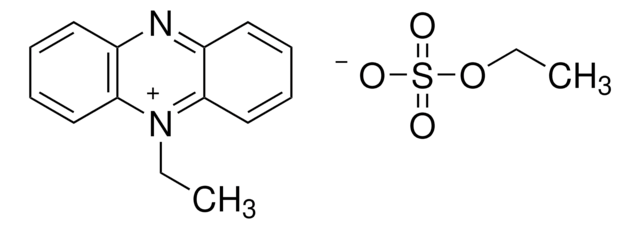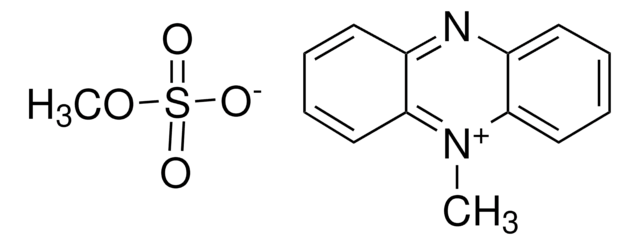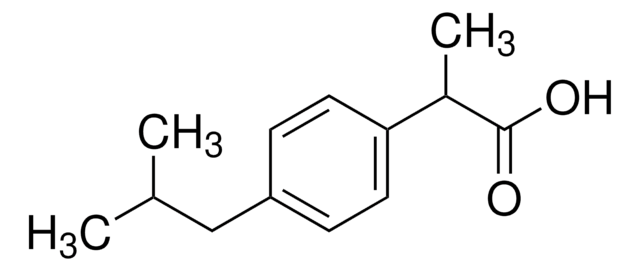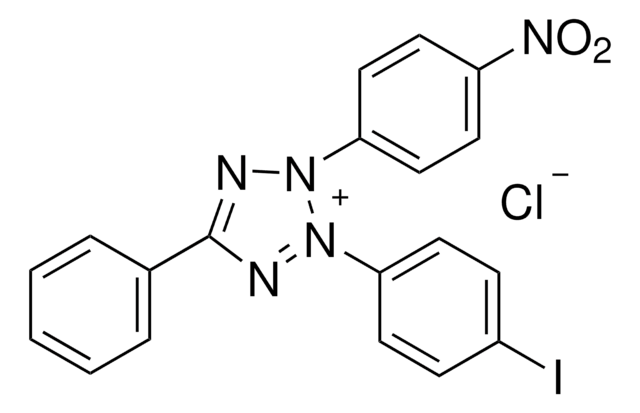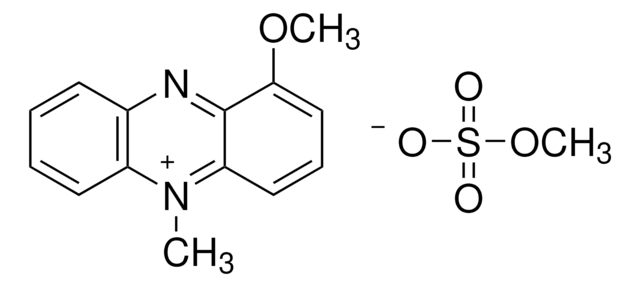D2197
Diaphorase from Clostridium kluyveri
recombinant, expressed in E. coli, Animal-component free
Synonym(s):
Diaphorase, Lipoamide Dehydrogenase, Lipoyl Dehydrogenase
Sign Into View Organizational & Contract Pricing
All Photos(3)
About This Item
Recommended Products
recombinant
expressed in E. coli
Quality Level
form
solid
specific activity
>=30 units/mg protein (biuret)
storage temp.
−20°C
General description
Research area: Cancer
Application
Diaphorase from Clostridium kluyveri has been used:
- in lactate dehydrogenase assay in gill cells.
- impregnated on the strip for formate dehydrogenase assay.
- in various assays to oxidate β-NADH or β-NADPH in the presence of an electron acceptor.
- for semiquinone generation during benzoquinone reduction.
- for evaluation of glucose uptake in cultured muscle cells.
- in lactate dehydrogenase cytotoxicity assay.
Biochem/physiol Actions
Diaphorase catalyzes the oxidation of either β-NADH or β-NADPH in the presence of an electron acceptor such as methylene blue or 2,6-dichlorophenolindophenol. Diaphorases that are specific for either β-NADH or β-NADPH are known. The pig heart enzyme of Straub seems to have native diaphorase (β-NADH specific) as well as lipoic and lipoamide dehydrogenase activities.
Unit Definition
One unit of diaphorase will oxidize 1.0 micromole of beta-NADH per minute at pH 7.5 at 25 degrees C, with the corresponding reduction of the appropriate electron acceptor.
Physical form
Supplied as a lyophilized powder containing trehalose.
Storage Class Code
11 - Combustible Solids
WGK
WGK 3
Flash Point(F)
Not applicable
Flash Point(C)
Not applicable
Choose from one of the most recent versions:
Certificates of Analysis (COA)
Lot/Batch Number
Don't see the Right Version?
If you require a particular version, you can look up a specific certificate by the Lot or Batch number.
Already Own This Product?
Find documentation for the products that you have recently purchased in the Document Library.
Customers Also Viewed
Knut Erik Hovda et al.
Scandinavian journal of clinical and laboratory investigation, 75(7), 610-614 (2015-07-24)
The standard diagnostic approach to methanol poisoning is chromatographic measurement of methanol on centrally placed stationary equipment. Methanol poisoning in places where such equipment is unavailable is thus often not diagnosed. Methanol is metabolized to a toxic metabolite, formate; the
Apor Veres-Székely et al.
International journal of molecular sciences, 23(4) (2022-02-27)
Fibroblasts play a central role in diseases associated with excessive deposition of extracellular matrix (ECM), including idiopathic pulmonary fibrosis. Investigation of different properties of fibroblasts, such as migration, proliferation, and collagen-rich ECM production is unavoidable both in basic research and
Claudio F Gonzalez et al.
The Journal of biological chemistry, 280(24), 22590-22595 (2005-04-21)
Most bacteria contain soluble quinone-reducing flavoenzymes. However, no biological benefit for this activity has previously been demonstrated. ChrR of Pseudomonas putida is one such enzyme that has also been characterized as a chromate reductase; yet we propose that it is
Progress in understanding algal bloom-mediated fish kills: the role of superoxide radicals, phycotoxins and fatty acids
Dorantes-Aranda JJ, et al.
PLoS ONE, 10(7), e0133549-e0133549 (2015)
Stephen J Ralph et al.
Pharmaceutical research, 28(11), 2695-2730 (2011-08-25)
Succinate:quinone reductase (SQR) of Complex II occupies a unique central point in the mitochondrial respiratory system as a major source of electrons driving reactive oxygen species (ROS) production. It is an ideal pharmaceutical target for modulating ROS levels in normal
Our team of scientists has experience in all areas of research including Life Science, Material Science, Chemical Synthesis, Chromatography, Analytical and many others.
Contact Technical Service